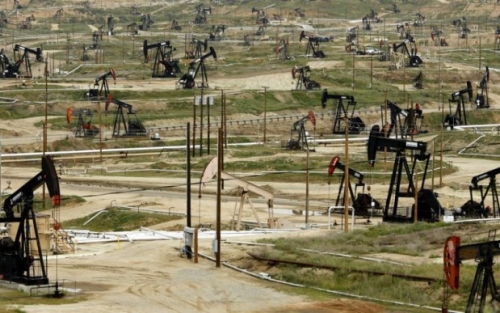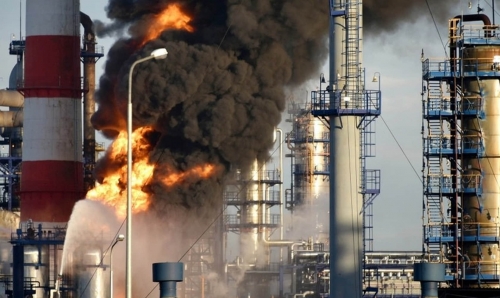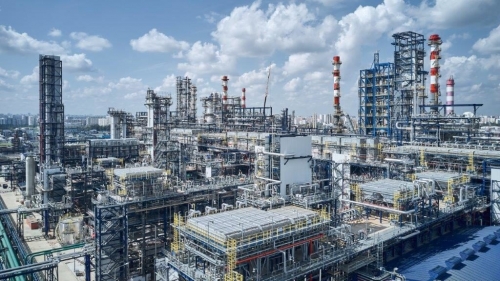Oil and gas production is the lifeblood of the global economy, fueling our transportation, power generation, and industrial sectors. However, this critical industry also has a significant, and often hidden, environmental impact.
From the extraction of fossil fuels to the transportation and refining of oil and gas, the industry emits greenhouse gases, pollutants, and wastewater that can damage ecosystems and harm human health.
The Environmental Consequences of Oil and Gas Production
- Greenhouse gas emissions: The oil and gas industry is one of the leading contributors to climate change, accounting for around 10% of global greenhouse gas emissions.
- Air pollution: Oil and gas operations release a variety of pollutants into the air, including particulate matter, nitrogen oxides, and sulfur dioxide. These pollutants can cause respiratory problems, heart disease, and cancer.
- Water pollution: Oil and gas production can contaminate surface water and groundwater with oil, chemicals, and wastewater. This can damage aquatic ecosystems and make drinking water unsafe.
- Land degradation: Oil and gas operations can damage land and ecosystems through deforestation, soil erosion, and the construction of pipelines and other infrastructure.
Sustainable Practices in the Oil and Gas Industry
While the oil and gas industry is a major source of environmental pollution, there are a number of things that companies can do to reduce their impact. Some of the most common sustainable practices include:
- Reducing greenhouse gas emissions: Companies can reduce their greenhouse gas emissions by using more efficient equipment and processes, investing in renewable energy sources, and capturing and storing carbon dioxide.
- Controlling air pollution: Companies can control air pollution by using cleaner fuels, installing pollution control equipment, and reducing flaring and venting.
- Protecting water resources: Companies can protect water resources by reducing water use, recycling wastewater, and treating wastewater before it is discharged.
- Minimizing land disturbance: Companies can minimize land disturbance by using directional drilling techniques, reducing the size of well pads, and reclaiming disturbed land.
Innovative Sustainable Technologies
In addition to these common practices, a number of innovative technologies are being developed to help the oil and gas industry reduce its environmental impact. Some of these technologies include:
- Carbon capture and storage (CCS): CCS technology captures carbon dioxide emissions from oil and gas operations and stores them underground. This prevents the emissions from entering the atmosphere and contributing to climate change.
- Methane capture and utilization (MCU): MCU technology captures methane emissions from oil and gas operations and uses them to generate electricity or other products. This reduces greenhouse gas emissions and provides a valuable resource.
- Waterless fracking: Waterless fracking is a new fracking technique that uses alternative fluids, such as nitrogen or carbon dioxide, instead of water. This reduces water consumption and the risk of water contamination.
Challenges and Opportunities
While there are a number of sustainable practices and technologies available, the oil and gas industry faces a number of challenges in reducing its environmental impact. One challenge is the high cost of some of these technologies. Another challenge is the need to coordinate efforts across the entire industry, from exploration and production to transportation and refining.
Despite these challenges, there are also a number of opportunities for the oil and gas industry to become more sustainable. As governments around the world implement stricter environmental regulations, companies that embrace sustainable practices will be well-positioned to succeed. Additionally, consumers are increasingly demanding products and services that are produced in a sustainable manner.
Conclusion
The oil and gas industry has a significant environmental impact, but there are a number of things that companies can do to reduce it. By investing in sustainable practices and technologies, the industry can help to protect the environment and ensure a sustainable future for its business.
Here are some additional thoughts on the hidden environmental impact of oil and gas production:
- The impact on wildlife: Oil and gas operations can disrupt wildlife habitats and migration patterns. They can also pollute the environment with chemicals and heavy metals, which can harm wildlife populations.
- The impact on indigenous communities: Oil and gas operations often take place on indigenous lands without the consent of the indigenous people. These operations can displace indigenous communities and damage their traditional way of life.
- The impact on public health: Oil and gas operations can release pollutants into the air and water, which can cause respiratory problems, heart disease, and cancer.
It is important to be aware of the hidden environmental impact of oil and gas production, and to support companies that are taking steps to reduce their impact. We can also make changes in our own lives to reduce our reliance on oil and gas, such as driving less, using public transportation, and switching to renewable energy sources.

%20(1).png)



